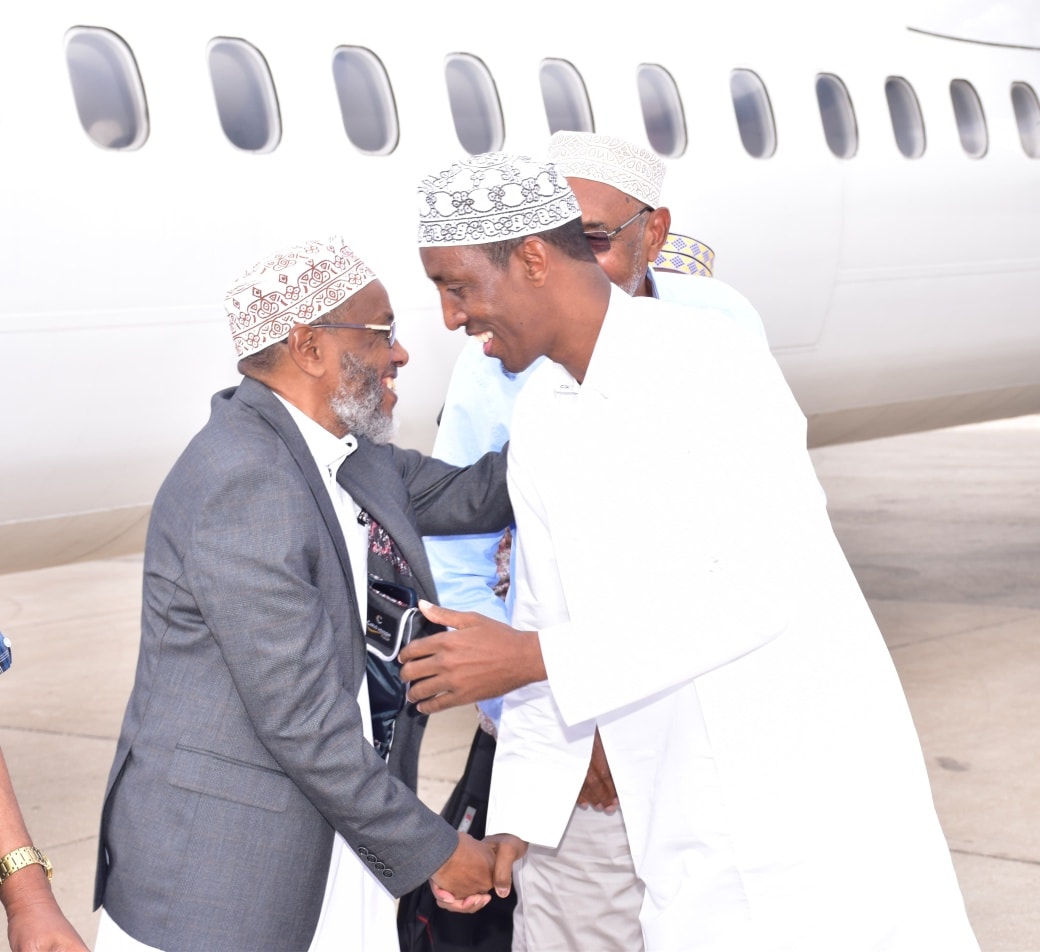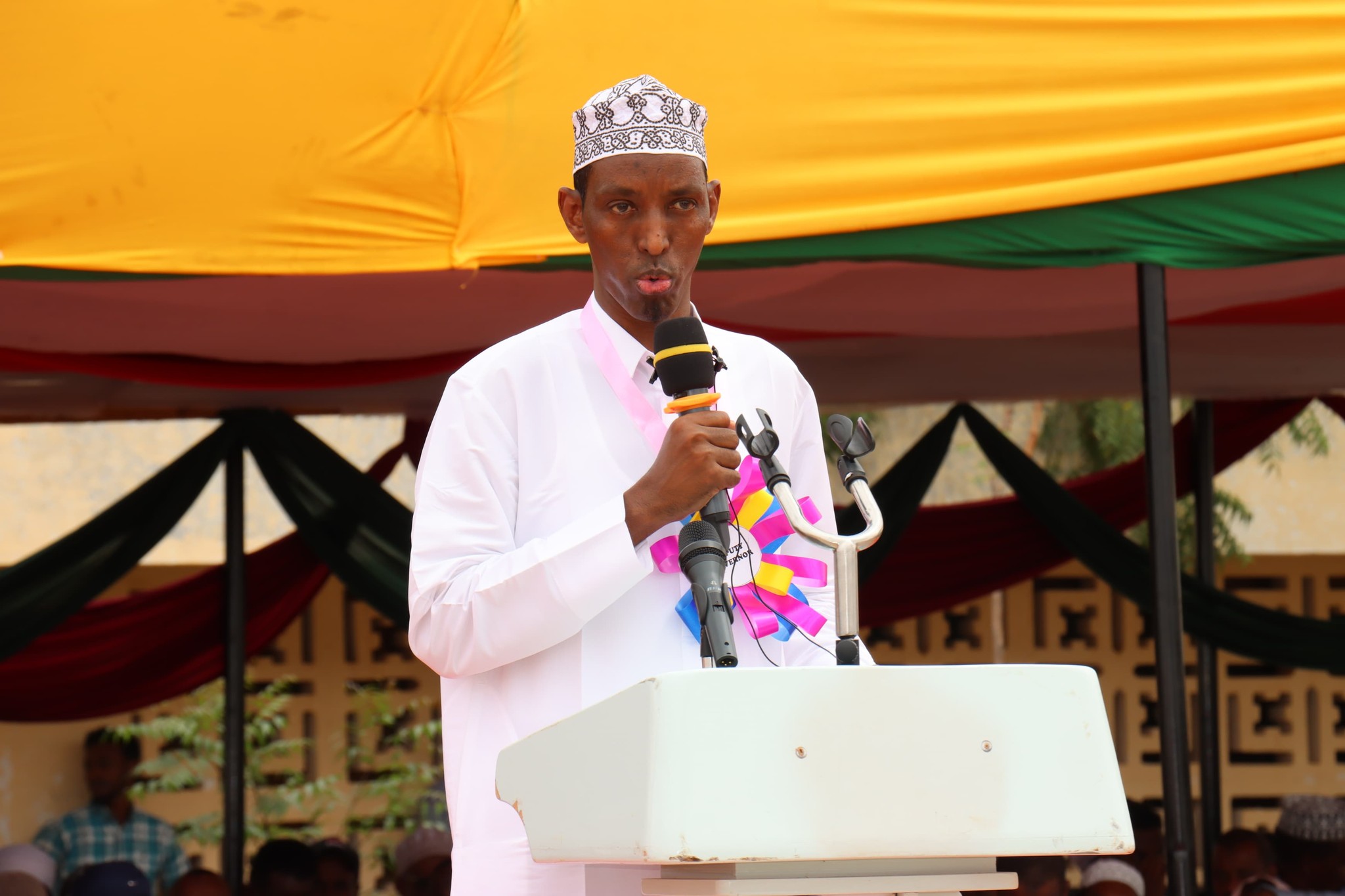 Wajir Deputy Governor Ahmed Muhumed with other leaders in Wajir./STEPHEN ASTARIKO
Wajir Deputy Governor Ahmed Muhumed with other leaders in Wajir./STEPHEN ASTARIKO Wajir Deputy Governor Ahmed Muhumed speaking in Wajir./STEPHEN ASTARIKO
Wajir Deputy Governor Ahmed Muhumed speaking in Wajir./STEPHEN ASTARIKO
Wajir Deputy Governor Ahmed Muhumed has raised fresh concerns over the growing menace of human trafficking in the region, warning that it is fast becoming a major barrier to education and youth development in northern Kenya.
Locally known as Tahrib, the trafficking of young people to North Africa and beyond has escalated in recent months, with desperate families selling property or falling into the traps of smugglers who often hand victims over to militia groups.
In a recent incident on July 1, police in Wajir North intercepted a group of 10 young men suspected to be victims of trafficking.
The group was stopped at Bambaa checkpoint in Gurar Division at around 11:45 pm while en route to an undisclosed destination.
Though the youths initially claimed they were headed to a wedding, they later confessed they were bound for Libya.
Speaking during a public event in Wajir, Deputy Governor Muhumed described human trafficking as a growing national crisis, particularly affecting marginalized and pastoralist communities.
“Most of our students who ought to go to college and tertiary institutions do not go but pursue avenues to be trafficked overseas,” he said. “
Often disguised as promises of job opportunities or education abroad, traffickers exploit the desperation of young people and their families seeking better futures.”
Muhumed warned that the illegal trade is not only robbing the region of its youth but is also derailing efforts to expand access to education.
He stressed that many victims end up in forced labour, domestic servitude, or are sexually exploited—both within Kenya and in foreign countries.
Calling for urgent action, the deputy governor urged both national and local stakeholders to develop clear strategies to combat the exploitation.
“We need to have an honest and broader national conversation on this issue,” he said.
“Personally, I am extremely concerned that this crisis will have long-term consequences on our region’s future workforce and educational progress.”
He called for coordinated efforts from government agencies, civil society groups, and community leaders to create safer and more sustainable pathways for youth—through education and employment, not migration scams.
The International Organization for Migration (IOM) has also flagged Kenya as a source, transit, and destination for human trafficking.
According to the IOM, many children are trafficked domestically for domestic work, street begging, and sexual exploitation.
Internationally, youth from northern and coastal Kenya are trafficked to the Middle East, South Asia, and parts of Europe through fake recruitment schemes.
“The crisis is further complicated by poverty, limited access to education, unemployment, and weak enforcement of laws,” the IOM said in a recent statement.
While Kenya has legal mechanisms in place—such as the Counter-Trafficking in Persons Act and a National Assistance Trust Fund for Victims—the IOM notes that enforcement remains inconsistent.
Last week, ODM Nominated MP Umulkheir Harun echoed the deputy governor’s concerns, urging parents, religious leaders, and the government to confront the issue head-on.
She said traffickers are targeting youth from Garissa, Wajir, Mandera, and the Dadaab refugee camps with promises of jobs abroad—only for the victims to end up in slavery.
“This must stop,” Harun said. “Our young people deserve better."















